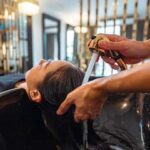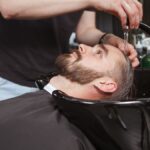Achieving healthy, vibrant, and manageable hair is a goal shared by many, but the path to achieving it can vary greatly depending on your hair type. Low porosity hair, characterized by tightly sealed cuticles that resist moisture absorption, presents a unique set of challenges and demands special care. One essential element in maintaining and enhancing the health of low-porosity hair is choosing the right oil.
The selection of the best oil for low-porosity hair can be a game-changer in your hair care routine, as it helps in addressing moisture retention, promoting shine, and prevent dryness and breakage. In this guide, we will explore the top oils that are well-suited for low-porosity hair, providing you with the knowledge and insights you need to make an informed decision and revitalize your lock
Low-porosity hair tends to have difficulty absorbing and retaining moisture, so it’s important to choose oils that can penetrate the hair shaft effectively. Here are 12 oils that are often recommended for low-porosity hair:
1. Argan Oil – best oil for low porosity hair
Argan oil, the best oil for low porosity hair, is a natural wonder with numerous benefits. This liquid gold is extracted from the kernels of argan trees in Morocco. Its lightweight, non-greasy nature makes it an ideal choice for those with low-porosity hair.
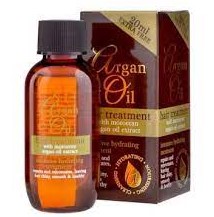
Benefits
– Argan oil is a superb moisturizer that penetrates low-porosity hair shafts, leaving them soft and hydrated.
-It imparts a healthy, radiant sheen to dull and lackluster hair.
-When used as a pre-styling treatment, it shields your hair from heat damage caused by styling tools.
-Argan oil tames frizz and flyaways, promoting a sleek, smooth look.
-Its rich composition of fatty acids and antioxidants aids in strengthening and repairing damaged hair.
-Massaging argan oil onto your scalp can alleviate dandruff and promote a healthier, itch-free scalp.
Pros
- Lightweight and non-greasy
- Suitable for low porosity hair
- Versatile for various hair types
- Natural and chemical-free
- Promotes hair health and vitality
Cons
- High-quality argan oil can be expensive
2. Jojoba Oil- Similar in structure to the hair’s natural oils
Jojoba Oil, often hailed as the best oil for low porosity hair, is a versatile and natural beauty elixir. Derived from the seeds of the jojoba plant, it boasts several advantages.
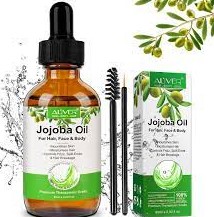
Benefits
- Jojoba oil mimics the scalp’s natural sebum, providing deep hydration to low-porosity hair without clogging pores.
- It tames unruly hair, reducing frizz and promoting a sleek, polished look.
- Easily untangles knots and snags, making combing and styling effortless.
- Jojoba oil’s anti-inflammatory properties can soothe irritated scalps, promoting overall hair health.
- Adds a natural, glossy sheen to dull, lackluster locks.
Pros
- Lightweight and non-greasy.
- Packed with vitamins and minerals.
- Long shelf life.
- All-natural, suitable for sensitive skin.
- Versatile for hair and skin care.
Cons
- Expensive compared to some other oils.
3. Sweet Almond Oil- This oil is rich in vitamins and minerals
Sweet Almond Oil, the best oil for low porosity hair, is a natural elixir for healthy locks. This oil is derived from almonds and boasts numerous benefits. It’s packed with vitamins and fatty acids, making it a go-to choice for hair care.
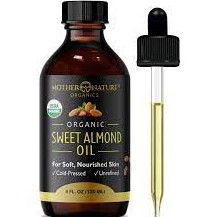
Benefits
- Sweet Almond Oil hydrates and nourishes low-porosity hair, preventing dryness and breakage.
- It imparts a natural shine to your locks, leaving them lustrous and radiant.
- Regular use can help strengthen hair, reducing brittleness and split ends.
- This oil is lightweight and won’t weigh down your hair, making it perfect for daily use.
- Massaging with Almond Oil can soothe the scalp, reducing dandruff and itching.
- It offers some protection against heat styling, reducing damage.
- By sealing the hair cuticles, it minimizes split ends and frizz.
Pros
- Natural and chemical-free.
- Suitable for all hair types, especially low porosity.
- Versatile for hair and skin care.
- Affordable and readily available.
- Pleasant, subtle fragrance.
Cons
- It may not work well for high-porosity hair.
4. Grapeseed Oil
Grapeseed Oil is the best oil for low-porosity hair. This lightweight, odorless oil is derived from grape seeds and offers numerous benefits.
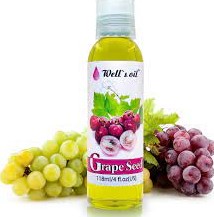
Benefits
- Grapeseed Oil is excellent for moisturizing and conditioning low porosity hair, as it penetrates the hair shaft without leaving a greasy residue.
- It imparts a natural shine to your hair, enhancing its overall appearance.
- Rich in vitamin E and antioxidants, it helps strengthen hair, reducing breakage.
- Grapeseed Oil tames frizz and flyaways, leaving your hair smoother and more manageable.
- It acts as a natural heat protectant, safeguarding your hair from damage caused by styling tools.
Pros
- Lightweight and non-greasy.
- Ideal for low-porosity hair due to its ability to penetrate the hair shaft.
- Suitable for all hair types.
- Helps detangle hair easily.
- Contains beneficial vitamins and antioxidants.
Cons
- It may not be as effective for high-porosity hair.
5. Avocado Oil – providing moisture to the hair
Avocado oil, the best oil for low porosity hair, is a versatile and nourishing choice for hair care. This oil is derived from the fruit of the avocado tree and offers several benefits.
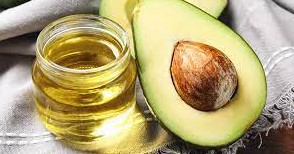
Benefits
- Avocado oil is rich in fatty acids penetrating low porosity hair, providing intense hydration.
- It enhances hair’s flexibility, reducing breakage and frizz.
- Packed with vitamins A, D, and E, it nourishes the hair, promoting overall health.
- Avocado oil contains proteins that reinforce hair, preventing damage.
- It stimulates hair follicles, supporting growth and thickness.
- Leaves hair looking lustrous and vibrant.
Pros
- Lightweight and non-greasy
- Effective in reducing dandruff and scalp dryness
- Suitable for all hair types
- Natural and free from harsh chemicals.
Cons
- Its distinct aroma may not be pleasing to everyone.
6. Coconut Oil
Coconut oil, often hailed as the best oil for low porosity hair, offers numerous benefits. It’s a natural, versatile product with an array of uses. This oil contains essential fatty acids, like lauric acid, which can deeply penetrate and moisturize low-porosity hair. Its benefits include

Pros
- Coconut oil is exceptional at moisturizing and sealing in hydration, making it ideal for low-porosity hair that struggles to retain moisture.
- It can strengthen hair, reducing breakage and promoting growth.
- Coconut oil’s antimicrobial properties can help combat dandruff and dry scalp.
- It tames frizz and makes hair more manageable.
- It adds a natural, healthy shine to your locks.
Cons
- Product Buildup
7. Olive Oil- A classic choice for moisturizing and softening
Olive oil is a popular choice due to its numerous benefits, especially for low porosity hair. It is a natural, unrefined oil extracted from olives, rich in antioxidants and healthy fats.

Benefits
- Olive oil is the best oil for low porosity hair as it penetrates the hair shaft effectively
- Providing deep moisture and preventing dryness.
- It tames frizz, leaving your hair smooth and manageable.
- Regular use can strengthen hair and reduce breakage.
- It imparts a natural shine, making your hair look healthy and lustrous.
- Olive oil has antimicrobial properties that help in reducing dandruff.
Pros
- Natural and SafeReadily AvailableAffordable
Cons
- Heavy Texture
8. Sunflower Oil- A lightweight option that can help with moisture retention.
Sunflower Oil, renowned for its versatility, offers numerous benefits, making it the best oil for low porosity hair. This oil is extracted from sunflower seeds and is light, odorless, and ideal for various purposes.

Benefits
- Sunflower oil provides deep moisturization for low-porosity hair, effectively preventing dryness and frizz.
- Packed with vitamin E, this oil acts as a potent antioxidant, protecting hair from damage caused by free radicals.
- Its lightweight nature ensures that it doesn’t weigh down low porosity hair, maintaining its natural volume.
- Sunflower oil is non-greasy, leaving hair soft and smooth without an oily residue.
- It strengthens hair from the roots, reducing breakage and split ends.
- Regular use can help in controlling dandruff and promoting a healthy scalp.
Pros
- VersatileAffordableNatural Shineappearance.
- Long Shelf Life
Cons
- Not Suitable for High-Porosity Hair
9. Babassu Oil- This oil is lightweight
Babassu Oil is a popular choice for individuals seeking the best oil for low porosity hair. Derived from the Babassu palm tree native to Brazil, this oil offers numerous benefits.
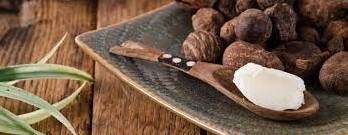
Pros
- Deep Moisturization:
- Lightweight Texture
- It effectively tames frizz,
- Leaving your hair smooth and manageable.
- It acts as a natural heat protectant,
Cons
- Babassu Oil has a nutty aroma
10. Moringa Oil- Rich in vitamins and antioxidants
Moringa Oil, often hailed as the best oil for low porosity hair, is derived from the seeds of the Moringa oleifera tree. This oil is renowned for its numerous benefits.
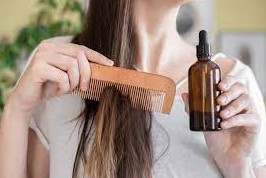
Benefits
- Moringa oil is rich in fatty acids and penetrates low porosity hair, providing deep hydration and combating dryness.
- It’s loaded with vitamins like A, C, and E, which nourish and strengthen hair, promoting healthy growth.
- Moringa oil tames unruly frizz, making it a go-to choice for sleek, manageable hair.
- Massaging Moringa oil into the scalp can help alleviate dryness and dandruff, promoting a healthier scalp environment.
- This oil imparts a natural shine to low porosity hair, enhancing its luster and radiance.
Pros
- Lightweight and non-greasy:
- UV Protection
- All-natural
- Anti-inflammatory
Cons
- Some individuals find its natural scent strong
11. Camellia Oil- Adding shine and moisture to the hair
Camellia oil, often dubbed the “best oil for low porosity hair,” is a lightweight and nourishing oil extracted from the seeds of the Camellia plant. This natural elixir has gained popularity for its numerous benefits.
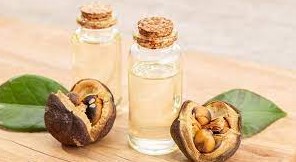
Benefits
- Camellia oil penetrates low porosity hair easily, providing deep hydration without weighing it down.
- It imparts a natural, healthy luster to hair, making it look radiant and vibrant.
- Camellia oil tames unruly hair by smoothing the cuticles and reducing frizz.
- It’s rich in essential fatty acids, which fortify and strengthen hair, preventing breakage.
- This oil acts as a heat protectant, shielding hair from damage caused by styling tools.
- Massaging the oil onto the scalp can alleviate dryness and promote a healthy, flake-free scalp.
Pros
- Lightweight and non-greasy
- Making it suitable for all hair types.
- Versatile, serving as a pre-shampoo treatment
- Contains antioxidants that combat free radicals
- Easily available and affordable in comparison to some other hair oils.
Cons
- May not be suitable for those with allergies to Camellia plants.
12. Safflower Oil- Help with moisture retention and hair softness.
Safflower oil, often touted as the best oil for low porosity hair, is a natural wonder with various benefits. This oil is derived from the safflower plant’s seeds and is known for its rich nutrient profile. Here are some key details and its pros and cons
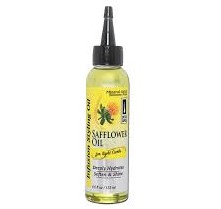
Benefits
- Safflower oil is excellent for low porosity hair as it easily penetrates the hair shaft
- It’s lightweight, making it ideal for fine, low porosity hair, without leaving a heavy or greasy feel.
- It contains high amounts of linoleic acid, an omega-6 fatty acid that nourishes and strengthens hair, promoting growth and minimizing breakage.
- Safflower oil has anti-inflammatory properties that can soothe an itchy or irritated scalp.
- It acts as a natural heat protectant, shielding your hair from damage caused by styling tools.
Pros
- Hydration
- Hair Growth
- Versatile
Cons
- Sensitivity
what are the best oils for low porosity hair?
The best oil for low porosity hair is typically lightweight and non-greasy. Coconut oil, argan oil, and jojoba oil are excellent choices. These oils can penetrate the hair shaft and moisturize without weighing it down. Coconut oil’s small molecules easily enter the hair, while argan oil adds shine and tames frizz. Jojoba oil mimics the scalp’s natural oils, helping to balance moisture. These oils are perfect for low-porosity hair, ensuring it remains nourished, manageable, and vibrant.
what is the best oil for low porosity hair?
The best oil for low porosity hair is argan oil. This lightweight, non-greasy oil easily penetrates the hair shaft, providing much-needed moisture to this hair type. Its high content of vitamin E and fatty acids helps nourish and hydrate low porosity hair, making it softer and more manageable. Argan oil also helps reduce frizz and adds shine without weighing down the hair. To use it, simply apply a few drops to damp hair or as a finishing touch on dry hair. Regular use of argan oil can transform your low-porosity hair, leaving it healthier and more vibrant.
what oil is best for low porosity hair?
The best oil for low porosity hair is coconut oil. This natural oil is highly effective in addressing the unique needs of low-porosity hair. It’s rich in fatty acids, which can easily penetrate the hair shaft, providing much-needed moisture and preventing moisture loss. Coconut oil helps to soften and condition low-porosity hair, making it more manageable and reducing frizz. To use, warm a small amount in your hands and apply it from mid-length to the ends of your hair. Regular coconut oil treatments can improve the overall health and appearance of low-porosity hair, making it a top choice for those with this hair type.
what oils are best for low porosity hair?
The best oils for low porosity hair are jojoba oil, argan oil, and grapeseed oil. Jojoba oil closely resembles the natural sebum of the scalp, making it an excellent choice for low porosity hair. It helps to balance moisture levels and prevent buildup. Argan oil is lightweight and rich in nutrients, effectively hydrating and nourishing low-porosity hair without causing greasiness. Grapeseed oil is another good option as it is easily absorbed, promoting hair health and shine. These oils work well to moisturize and maintain the optimal condition of low-porosity hair, leaving it soft, manageable, and vibrant.
FAQ
Does oiling help low porosity hair?
Oiling can benefit low porosity hair. The best oil for low porosity hair is coconut oil, as it can penetrate the hair shaft. Applying warm coconut oil opens up hair cuticles, allowing moisture to enter. This helps in preventing dryness and promotes hair health. Regular oiling enhances hair manageability, reduces frizz, and boosts shine. To maximize the benefits, warm the oil and massage it into your hair, then cover it with a shower cap for better absorption. Incorporating oiling into your hair care routine can be a game-changer for low-porosity hair.
Is Vitamin E oil good for Low porosity hair?
Vitamin E oil is the best oil for low porosity hair. It’s ideal for this hair type due to its lightweight nature and high absorption capacity. Low-porosity hair tends to resist moisture, but Vitamin E oil can penetrate the hair shaft, providing deep hydration. This oil also helps in preventing hair breakage and promotes a healthy scalp. Its antioxidant properties make it an excellent choice to combat damage, leaving low-porosity hair nourished and lustrous.
Can I use coconut oil on low porosity hair?
Yes, you can use coconut oil on low porosity hair. Coconut oil is often considered the best oil for low porosity hair. Its lightweight nature allows it to penetrate the hair shaft, providing moisture and preventing frizz. Apply it sparingly to avoid buildup. Regular use can help maintain healthy, well-moisturized locks, making it a popular choice for those with low-porosity hair.
Conclusion
In conclusion, selecting the best oil for low porosity hair is essential for maintaining healthy and well-nourished locks. It’s clear that the right choice depends on individual preferences and hair needs. Experimenting with various options like argan, jojoba, or coconut oil can help identify the perfect fit. Regular oil treatments can enhance moisture retention and prevent dryness.



